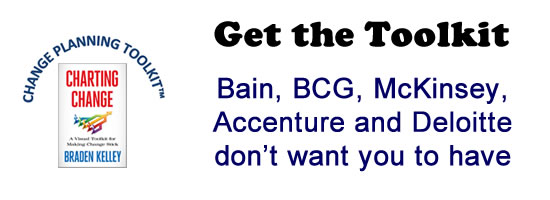Successful Kids Are Taught This Most Important Lesson
Our kids look to us for answers, advice, and guidance, but what if the best advice was letting them figure it out?

If you’re a parent I’m about to push you outside of your comfort zone.
One day your child will look at you, with disappointment, perhaps even anger, and say, “Why didn’t you force me to keep (fill in the blank_________) when I was younger?” Their regret may be not having learned to play a musical instrument, or not being more involved in a particular sport, or any one of a million things that they will wish they had done more of in order to further their sense of self-worth and confidence.
So, what was, or what will be, your response to that question?
The temptation is to remind them of how ridiculously difficult it was to get them to do whatever they are now bemoaning not having done. Or to point out how their obstinance was turning into an immense friction in the parent/child relationship. Or that you just got tired of their incessant whining and complaining. Or, maybe you’ll just pull the trump card that’s been used by every parent since the stone age, “Just wait until you have kids; then you’ll see!”
If you’ve been there, as have I, you’ve likely done all of the above.
Still, you will take their comment very personally and you will undoubtedly question your parenting choices. Were you neglectful, lazy, didn’t push hard enough, didn’t negotiate well, were you unqualified for parenthood? After all, we’ve all heard about how uber-successful olympians, athletes, and musicians were pushed by their parents to excel.
Let’s face it, nothing is as humbling as being told by your own kids that you dropped the ball on them.
But did you?
I’m not saying that as parents it’s not our responsibility to help them by pushing them to reach beyond their perceived limits, or that allowing them to always take the easy way out is a strategy. It’s a parent’s responsibility to put up guardrails, limits, and discipline to keep them safe while helping them grow.
But go back to what I said at the outset of this column. The reason they are regretting not being pushed harder is because they want to further their sense of self-worth and confidence.
The objective of parenting is to raise kids who take ownership of their choices in order to develop self-worth and confidence. Which is why the worst thing we can do as parents is to not give them the license to choose; the knowledge that their choices are their own–even when we know that those choices are absolutely not the ones we would want them to make.
“Parenting is sort of like remotely piloting the landing of the Mars Rover.”
Otherwise, they will forever go through life looking for someone or something else to blame for what they need to own. And guess what? Successful adults own all of it, because if they don’t they’ve just handed over the reins to their success to circumstances, people, and events that they have no control over.
So, what can you do as a parent to help them develop their ability to make choices and take ownership of them, in order to be more successful as adults? Here’s a simple list of five ways to do just that:
1) Allow Them to Make Bad Choices
This is the toughest one; it’s like seeing them step onto the tracks of an oncoming train. Of course we have a responsibility to keep our kids healthy and safe. No parent will argue that. But there are many less consequential choices that you can let them make which will keep then within the guardrails and still allow them to learn from their choices, good and bad. And when they do make a choice that turns out badly avoid at all costs the “I told you so” reflex. The result of the choice is less important than the acknowledgement that it was their choice and that they need to accept the implications of that choice.
2) Explain to Them the Consequences of Their Choices, Not Yours
My son once gave me a pearl of unassailable wisdom that has stuck with me. While trying to convince him that my 40 plus years of life experience might actually count for something which could help him on his own journey, he responded, ” Dad, you’ve only taken one path through life, yours; there are infinitely more paths you could have taken and you don’t know how they might have turned out.” Yes, brilliant, thanks for that. It’s their path, not yours. The more paving of their path that you do the less they feel capable of doing it on their own and the more they’ll blame you for every bump in the road.
3) Let Them Earn Their Success on Their Own
Thomas Paine once said, “Anything we earn too easily we esteem too lightly.” Nowhere is this as true as it is for the choices we make. There’s little doubt that there are many cases when a parent can make a better informed choice that will result in a better outcome. But it’s their outcome not yours that they need to earn and own. The more you try to advertise the pride you’ve taken in your choices the less chance you give them to take pride in theirs.
4) Give Them Tools With Which to Make Their Own Decisions
Making decisions is one of the most basic survival skills. It’s essential to every aspect of professional and personal life. To some degree it’s innate. We’re wired to balance options, alternatives, and risks. But the complexity of modern life is more than just picking left or right at the fork in the road. The implications and the intricacies of many decisions can be paralyzing.
Help your kids by showing them that decision making is a process that can be managed. Keep in mind that their ability to understand consequences is not yet fully evolved. Research has shown that adolescent and teenage brains discount the severity of poor choices, increasing the appetite for risk when kids are younger. It’s also easy for kids to get overwhelmed with the many variables that go into a choice.
Your role is to walk them through the decision making process without making the decision for them. Do that by practicing decision making with them. Ask for their opinions on choices you are making and then follow through on their opinion by taking their advice in order to demonstrate that you have confidence in their ability to make choices.
5) Teach Them That There Is Always A Choice
At the end of the day the greatest lesson any of us can learn is that in every situation there is a choice. And while we may not have our hands on the levers of the external forces that determine and dictate our situation, we always have a choice in how we react to and what we learn from every situation. Knowing you have the power of choice, even when things go wrong, is perhaps the greatest strength of successful people. You will make bad choices. You will fail and fall. You, and you alone, will choose how fast you get back up.
Sounds easy, right? Have I done all of these with my own children? I’d love to say that I have. I haven’t. Parenting isn’t precise. It’s sort of like remotely piloting the landing of the Mars Rover.
It takes about 14 minutes to send a radio signal to to Mars. That means that there is no way you can land anything on Mars remotely since the descent to the Martian surface takes only six minutes. The Rover needs to land itself, making myriad decisions along the way. The same applies to raising kids, only the lag time between what you tell them and their metaphorical landing is more like 20 years!
Still, what I can tell you is that with patience and determination these five lesson work.
Thanks Dad
When my daughter was just 17, and first driving, she backed up directly into one of my cars parked in the driveway. Of course, it just happened to be a car I was especially fond of and had meticulously maintained. Upset, and expecting some sort of retribution on my part, she came in apologetically to tell me what had happened. I could see and hear her anxiety. I didn’t need to pile on. She knew what she’d done. So, I let it go, telling her to just use it as a lesson and to be careful, take her time, and make sure that she looked carefully all around her when backing up from now on. Then, after she left, I sat and stared at the fender gouging into my tire.
The next day she came home and handed me an envelope. Inside was a simple card that read, “The only thing bigger then the ocean and the sky is a Dad’s heart,” to which she had added her inscription, “Dad, thanks for always supporting my choices.” She called it a Father’s day card. It was August.
I can tell you that in that moment everything she’d ever done to upset and frustrate me over the past 17 years was wiped clean.
Isn’t that what you want to hear; that your kids have made their choices, not yours? And that they are able to navigate life’s twists and turns without you, perhaps even better then you?
I have no doubt that she, as do I, and as does every child, will blame Dad for many things. I’ve often joked that it’s ultimately why we have parents, to abdicate responsibility for those things we just don’t want to own by placing the blame at Mom or Dad’s doorstep. Clearly, we’re not blameless. Sometimes we should have pushed harder, other times we pushed too hard.
Ultimately, all that matters is how hard they choose to push themselves.
This article was originally published on Inc.
Wait! Before you go…
Choose how you want the latest innovation content delivered to you:
- Daily — RSS Feed — Email — Twitter — Facebook — Linkedin Today
- Weekly — Email Newsletter — Free Magazine — Linkedin Group
 Tom Koulopoulos is the author of 10 books and founder of the Delphi Group, a 25-year-old Boston-based think tank and a past Inc. 500 company that focuses on innovation and the future of business. He tweets from @tkspeaks.
Tom Koulopoulos is the author of 10 books and founder of the Delphi Group, a 25-year-old Boston-based think tank and a past Inc. 500 company that focuses on innovation and the future of business. He tweets from @tkspeaks.
NEVER MISS ANOTHER NEWSLETTER!
LATEST BLOGS
How Brexit Has Affected UK E-commerce Businesses
Photo by Zyro on Unsplash The popularity of online shopping was already growing at an impressive rate – and…
Read MoreOvercoming range anxiety: three tips for EV owners
Photo by Jenny Ueberberg on Unsplash In the last few years, electric vehicles (EVs) have become more and more…
Read More


